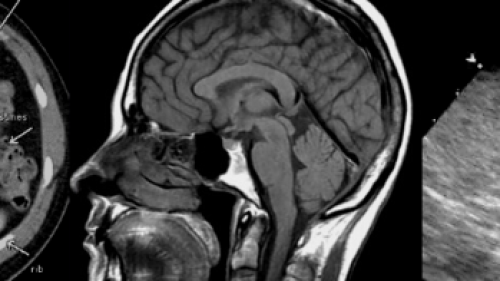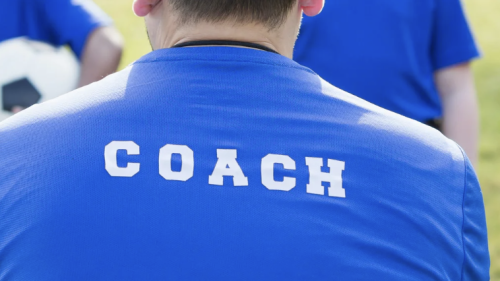
Sport, Exercise and Performance Psychology
The Bachelor of Science in Sport, Exercise, and Performance Psychology at Kent State University examines the psychological factors influencing athletic and performance success. This online program covers motivation, mental training, and stress management, equipping students with skills applicable in sports, exercise science, and wellness. Graduates are prepared for careers that support athletes and performers in achieving their best, or for advanced study in psychology and related fields.
Sport, Exercise and Performance Psychology Bachelor’s Degree Program Overview
The Bachelor of Science degree in Sport, Exercise and Performance Psychology provide students, athletes and those preparing for careers as coaches and sport practitioners with the knowledge of psychological theory and skills to enhance human behavior in the sport and exercise settings and the performing arts. The major differs from existing sport-related bachelor’s degree programs due to its focus on psychological processes related to sport performance, as opposed to existing programs that focus on pedagogical, physiological or the business aspects of sport performance.
The Sport, Exercise and Performance Psychology major explores social-psychological concepts such as motivation, self-confidence, anxiety or burnout, and how these concepts interact with the sport environment to influence athletes (e.g., losing focus under pressure or having self-doubts during a game) and performance. The program prepares students with essential knowledge of psychological aspects of sport performance and ethical practice to work in wide-ranging sport-related fields or to further their education in their chosen careers via graduate programs and mental performance certification by the Association of Applied Sport Psychology.
Program Learning Outcomes
Graduates of this program will be able to:
- Explain the role of the individual and the environments in sport and exercise behavior.
- Demonstrate understanding of the foundation of motivation in sport sciences, learning and personal life.
- Define and illustrate the concepts, tools and application of mental skills and performance enhancement.
- Design and evaluate an applied research study from inception to conclusions.
- Define the standards for competence, domestic and global diversity and ethical principles (i.e., AASP and APA) and its role in sport psychology professional practice.
Why should I get a degree in Sport, Exercise, and Performance Psychology?
The Bachelor of Science degree in Sport, Exercise, and Performance Psychology provides students, athletes, and those preparing for careers as coaches and sports practitioners with the knowledge of psychological theory and skills to enhance human behavior in the sport and exercise settings and the performing arts. It explores social-psychological concepts such as motivation, self-confidence, anxiety, or burnout, and how these concepts interact with the sports environment to influence athletes (e.g., losing focus under pressure or having self-doubts during a game) and performance.
How is this degree different from any other sport-related bachelor’s degree?
The online Bachelor of Science degree in Sport, Exercise, and Performance Psychology differs from existing sport-related bachelor’s degree programs due to its focus on psychological processes related to sports performance, as opposed to existing programs that focus on pedagogical, physiological, or business aspects of sports performance.
What is the focus of the Bachelor of Science in Sport, Exercise, and Performance Psychology program at Kent State University?
The program focuses on the psychological factors that influence sport, exercise, and performance. Students learn how mental skills such as motivation, focus, and resilience impact athletic and performance outcomes. The curriculum covers topics like mental skills training, group dynamics, and the psychology of injury rehabilitation to prepare students for careers in coaching, mental performance coaching, and other related fields.
What career opportunities are available after earning this degree?
Graduates of this program can pursue various career paths, including:
- Mental performance coach
- Athletic coach
- Sports consultant
- Strength and conditioning coach
- Health and wellness coach
- Rehabilitation specialist
- Tactical performance coach in military and law enforcement settings
Is the program 100% online?
Yes, Kent State’s Bachelor of Science in Sport, Exercise, and Performance Psychology is offered entirely online. This format provides flexibility for students to complete coursework from anywhere while balancing personal and professional commitments.
What skills will I develop in the program?
Students will develop key skills in:
- Psychological techniques for improving performance and motivation
- Goal-setting and mental preparation strategies
- Injury and rehabilitation psychology
- Leadership and communication within teams
- Research and application of sport psychology principles
Do I need a background in sports to enroll in this program?
No prior experience in sports is required. The program is designed for anyone interested in understanding how psychology influences human performance, whether in athletic, corporate, or personal development settings.
How long does it take to complete the program?
The program typically takes four years to complete on a full-time basis. However, students may choose part-time enrollment options, which can extend the completion time.
Can this degree prepare me for graduate studies?
Yes, this program provides a strong foundation for pursuing graduate degrees in areas such as sport psychology, counseling, kinesiology, and performance coaching.
How does sport psychology differ from physical training?
While physical training focuses on building strength, endurance, and technique, sport psychology emphasizes mental conditioning, such as goal setting, confidence building, and focus under pressure. Both aspects work together to optimize an athlete’s overall performance.
Who is this program ideal for?
This program is ideal for individuals who:
- Are passionate about sports, fitness, and performance improvement
- Want to help athletes and performers achieve their full potential
- Are interested in careers in coaching, sports consulting, or wellness coaching
- Seek a flexible online learning environment to balance their studies with other commitments
Sport, Exercise and Performance Psychology Bachelor’s Degree Program Admissions Requirements
The university affirmatively strives to provide educational opportunities and access to students with varied backgrounds, those with special talents and adult students.
First-Year Students on the Kent Campus: First-year admission policy on the Kent Campus is selective. Admission decisions are based upon cumulative grade point average, strength of high school college preparatory curriculum and grade trends. Students not admissible to the Kent Campus may be administratively referred to one of the seven regional campuses to begin their college coursework. For more information, visit the admissions website for first-year students.
First-Year Students on the Regional Campuses: First-year admission to Kent State’s campuses at Ashtabula, East Liverpool, Geauga, Salem, Stark, Trumbull and Tuscarawas, as well as the Twinsburg Academic Center, is open to anyone with a high school diploma or its equivalent. For more information on admissions, contact the Regional Campuses admissions offices.
International Students: All international students must provide proof of proficiency of the English language (unless they meet specific exceptions) through the submission of an English language proficiency test score or by completing English language classes at Kent State’s English as a Second Language Center before entering their program. For more information, visit the admissions website for international students.
Former Students: Former Kent State students who have not attended another institution since Kent State and were not academically dismissed will complete the re-enrollment process through the Financial, Billing and Enrollment Center. Former students who attended another college or university since leaving Kent State must apply for admissions as a transfer or post-undergraduate student.
Transfer Students: Students who attended an educational institution after graduating from high school or earning their GED must apply as transfer students. For more information, visit the admissions website for transfer students.
Admission policies for undergraduate students may be found in the University Catalog’s Academic Policies.
Students may be required to meet certain criteria to progress in their program. Any progression requirements will be listed on the program’s Coursework tab
Program Courses
Program Requirements
| Code | Title | Credit Hours |
|---|---|---|
| Major Requirements (courses count in major GPA) | ||
| HED 46052 | STRESS: RECOGNITION AND MANAGEMENT | 2 |
| PESP 25033 | LIFESPAN MOTOR DEVELOPMENT | 3 |
| PESP 45015 | PSYCHOLOGY OF COACHING | 3 |
| PH 30002 | INTRODUCTORY BIOSTATISTICS | 3 |
| PSYC 21621 | QUANTITATIVE METHODS IN PSYCHOLOGY I | |
| SEPP 20026 | PSYCHOLOGICAL FOUNDATIONS OF SPORT AND EXERCISE | 3 |
| SEPP 30019 | PSYCHOSOCIAL PERSPECTIVES FOR GROWTH AND DEVELOPMENT IN YOUTH SPORT | 3 |
| SEPP 32250 | PSYCHOLOGICAL ASPECTS OF SPORT INJURY | 3 |
| SEPP 40020 | HIGH PERFORMANCE ATHLETES IN SPORT | 3 |
| SEPP 40221 | EXERCISE PSYCHOLOGY | 3 |
| PSYC 41584 | THE PSYCHOLOGY OF EXERCISE | |
| SEPP 45007 | PRINCIPLES AND APPLICATION OF SPORT PSYCHOLOGY | 3 |
| SEPP 45092 | PRACTICUM IN SPORT PERFORMANCE (ELR) | 3 |
| SEPP 45300 | MOTIVATION IN SPORT, PERFORMANCE, AND MOVEMENT SETTINGS | 3 |
| SEPP 48225 | SPORT PERFORMANCE PSYCHOLOGICAL INTERVENTIONS | 3 |
| SPAD 25000 | SPORT IN SOCIETY (DIVD) | 3 |
| SPAD 43018 | ETHICS IN SPORT | 3 |
| SPAD 45020 | ORGANIZATION, ADMINISTRATION AND LEADERSHIP IN SPORT | 3 |
| SPAD 45024 | SPORT IN GLOBAL PERSPECTIVE | 3 |
| SPAD 45050 | SOCIAL PSYCHOLOGY OF SPORT | 3 |
| Additional Requirements (courses do not count in major GPA) | ||
| COMM 15000 | INTRODUCTION TO HUMAN COMMUNICATION (KADL) | 3 |
| PSYC 11762 | GENERAL PSYCHOLOGY (DIVD) (KSS) | 3 |
| UC 10001 | FLASHES 101 | 1 |
| Physical Activity, Wellness and Sport (PWS) Electives | 2 | |
| Kent Core Composition | 6 | |
| Kent Core Mathematics and Critical Reasoning | 3 | |
| Kent Core Humanities and Fine Arts (minimum one course from each) | 9 | |
| Kent Core Social Sciences (must be from two disciplines) | 3 | |
| Kent Core Basic Sciences (must include one laboratory) | 6-7 | |
| Kent Core Additional | 3 | |
| General Electives (total credit hours depends on earning 120 credit hours, including 39 upper-division credit hours) | 28 | |
| Minimum Total Credit Hours: | 120 | |
Sport, Exercise and Performance Psychology Bachelor’s Degree Program Tuition and Fees
Ohio Residents
| Per Credit Hour | Per 3-Credit Course | Approximate Tuition Cost |
| $612.62 | $1,837.86 | $53,700 full-time1 |
Non-Ohio Residents
| Per Credit Hour | Per 3-Credit Course | Approximate Tuition Cost |
| $622.62 | $1,867.86 | $54,900 full-time2 |
1The flat-rate semester fee of $6,722.60 applies to full-time Ohio resident undergraduate students taking between 12-18 credit hours per semester. This program is calculated at 8 semesters.
For part-time semesters: The $610.75 per-credit-hour tuition rate applies to part-time Ohio resident undergraduate students taking fewer than 12 credit hours per semester.
2The flat-rate semester fee of $6,722.60 applies to full-time non-Ohio resident undergraduate students enrolled in a fully online degree program and taking between 12-18 credit hours, PLUS a surcharge of $10 per credit hour of actual credits taken (between 12-18 or $120-$180). This program is calculated at 8 semesters plus the surcharge.
For part-time semesters: The $620.75 per-credit-hour tuition rate applies to part-time non-Ohio resident undergraduate students enrolled in a fully online degree program and taking fewer than 12 credit hours per semester, PLUS a surcharge of $10 per credit hour.
- An additional Distance Learning fee for all students enrolled in a distance learning course is $15 per credit hour. Program tuition and costs are estimated and subject to change.
- Actual tuition costs will vary based on a student’s chosen academic plan. The full cost of attendance consists of tuition and fees, and when applicable, food, housing, books, course materials, supplies and equipment, transportation and personal expenses for the enrolled terms. Other expenses not included in tuition and fees totals can be found on the Kent State University cost of attendance web page.
- For a complete listing of tuition rates for approved online programs, please contact Kent State’s Financial, Billing & Enrollment Center at 330-672-6000 or via our website Contact Us link.







